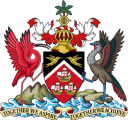About the Special Economic Zones
About the SEZ Regime
The Special Economic Zones (SEZ) regime seeks to create a modern, internationally competitive, and attractive
investment climate that is built upon the principles of transparency, inclusivity, and sustainability. The SEZ
regime will diversify and strengthen Trinidad and Tobago’s economy and become an integral part of its national economic landscape.
The new regime complements Trinidad and Tobago’s national goals and objectives, namely the National Development
Strategy, Vision 2030. Theme IV: Building Globally Competitive Businesses of Vision 2023 outlines several goals, which include:
- Establishment of centers of excellence and technology parks
- Development of new and enhanced suite of incentives
- Development of existing economic sectors
- Support for new and emerging sectors
The new SEZ regime represents a holistic investment framework, which aims to attract local and international
investment, boost exports and economic diversification, create new employment opportunities, and encourage increased
private sector participation in the economy, all within globally accepted standards and best practices.
A Revised Special Economic Zones Policy for Trinidad and Tobago was approved in July 2019 following Trinidad and Tobago
joining the Base Erosion and Profit Shifting (BEPS) Inclusive Framework of the Organization for Economic Co-operation
and Development (OECD). This policy served as the framework for the current SEZ regime. On 31 January 2022, the Special
Economic Zones (SEZ) Act, 2022, was partially proclaimed to allow for the establishment of the Trinidad and Tobago
Special Economic Zones Authority (SEZA); the appointment of the Board for the Authority; and the staffing and setting up
of the SEZA. The Act was fully proclaimed on 5 July 2024, repealing the Free Zones Act, bringing into effect the SEZ
Regulations, 2023, and allowing the Authority to receive applications from public or private bodies, or public-private
partnerships for specific licenses to conduct business as an SEZ entity and benefit from the provisions outlined in the legislation.
Some of the distinguishing characteristics of the SEZ regime include specially designated zones, a robust institutional
framework, and a dynamic incentive framework.
Designation of SEZs
The designation of various types of Special Economic Zones for specific types of activities enables the government to
encourage activities that are critical to national development and focus these investments in urban and rural communities
throughout Trinidad and Tobago. Special Economic Zones will be designated as one of the following:
- Free Port: A duty-free area, located at a port of entry where imported goods may be unloaded for warehousing,
repackaging, or processing of imported goods for value-adding activities, and logistics services and sales.
- Free Trade Zone: A duty-free area that accommodates specific activities targeted for international trade.
- Industrial Park: A purpose-built industrial estate that leverages domestic and foreign fixed direct investment in
value-added and export-oriented manufacturing industries.
- Specialized Zone: A place designated for specialized activities including: manufacturing, maritime services,
aviation services, fishing and fish processing, agriculture and agro-processing, information and communications technology,
creative industries, financial services, medical tourism services, renewable energy, logistics and distribution, and business
process outsourcing.
- Development Zone: An area where activities are focused on the development of a specific geographic region with
emphasis on factors such as employment, skills training, entrepreneurship, rural development, and overall social and economic
development of the area.
 Government of the
Republic of Trinidad and Tobago
Government of the
Republic of Trinidad and Tobago
